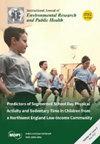以合作的方式了解酒精和其他药物部门同侪实践与政策的交叉点
3区 综合性期刊
Q1 Medicine
International Journal of Environmental Research and Public Health
Pub Date : 2024-08-30
DOI:10.3390/ijerph21091152
引用次数: 0
摘要
导言:酗酒和其他毒品行业的同龄人拥有生活经验(LLE),这对形成社区护理至关重要。然而,真正的消费者合作往往受到污名化的影响。本研究考察了同行的看法,探讨了他们在劳动力动态、政策影响以及对健康公平的影响方面的经验。在介绍这项研究时,我们试图对研究方法进行综合,并说明通过真正的合作进行药物使用研究的方法创新和知识创造。研究方法我们有目的地对同伴网络和社区组织进行取样,让同伴研究者参与规划、设计和分析。我们对 18 名同伴进行了半结构化数字访谈,并采用迭代编码法对数据进行分析。结果:这一合作过程提供了对部门挑战的细微洞察。同行们在重温个人使用药物的经历时表示情绪紧张,模糊了个人与职业的界限。对同伴参与的不置可否的批评强调了真正的领导力和组织支持的必要性。结论:我们主张通过组织和系统重组,转向公平、包容的政策制定。然而,这些变革受到更广泛的政策框架的制约,需要转向同行主导原则,确保同行的专业知识得到真正的重视。政策制定者应投资扩大同侪框架,承认吸毒者社区的多样性,以改善健康公平和公共卫生成果。这种药物使用研究的创新方法强调了将 LLE 纳入研究的变革性影响。本文章由计算机程序翻译,如有差异,请以英文原文为准。
A Collaborative Approach to Understanding the Intersections of Practice and Policy for Peers in the Alcohol and Other Drugs Sector
Introduction: Peers in the alcohol and other drug sectors possess lived–living experience (LLE) crucial for shaping community care. However, genuine consumer collaboration is often confounded by stigma. This study examined peers’ perceptions, exploring their experiences regarding workforce dynamics, policy implications, and impacts on health equity. In presenting the research, we sought to synthesise the research methods and illustrate the methodological innovation and knowledge production in substance use research through authentic collaboration. Methods: We purposively sampled peer networks and community organisations, involving peer-researchers in planning, design, and analysis. We conducted semi-structured digital interviews with 18 peers and applied iterative coding to analyse the data. Results: This collaborative process provided nuanced insights into sectoral challenges. Peers expressed emotional strain revisiting personal substance use experiences, blurring personal and professional boundaries. Tokenistic peer involvement critiques underscored the need for genuine leadership and organisational support. Conclusion: We advocate for a shift towards equitable and inclusive policy development through both organisational and systemic restructuring. However, these changes are hamstrung by broader policy frameworks, which require a shift to peer-led principles, ensuring the expertise of peers is genuinely valued. Policymakers should invest in expanding peer frameworks, acknowledging the diversity within communities of people who use drugs to improve health equity and public health outcomes. This innovative approach to substance use research emphasises the transformative impact of integrating LLE into research.
求助全文
通过发布文献求助,成功后即可免费获取论文全文。
去求助
来源期刊

International Journal of Environmental Research and Public Health
Medicine-Public Health, Environmental and Occupational Health
CiteScore
7.30
自引率
0.00%
发文量
14422
审稿时长
1 months
期刊介绍:
International Journal of Environmental Research and Public Health (IJERPH) (ISSN 1660-4601) is a peer-reviewed scientific journal that publishes original articles, critical reviews, research notes, and short communications in the interdisciplinary area of environmental health sciences and public health. It links several scientific disciplines including biology, biochemistry, biotechnology, cellular and molecular biology, chemistry, computer science, ecology, engineering, epidemiology, genetics, immunology, microbiology, oncology, pathology, pharmacology, and toxicology, in an integrated fashion, to address critical issues related to environmental quality and public health. Therefore, IJERPH focuses on the publication of scientific and technical information on the impacts of natural phenomena and anthropogenic factors on the quality of our environment, the interrelationships between environmental health and the quality of life, as well as the socio-cultural, political, economic, and legal considerations related to environmental stewardship and public health.
The 2018 IJERPH Outstanding Reviewer Award has been launched! This award acknowledge those who have generously dedicated their time to review manuscripts submitted to IJERPH. See full details at http://www.mdpi.com/journal/ijerph/awards.
 求助内容:
求助内容: 应助结果提醒方式:
应助结果提醒方式:


